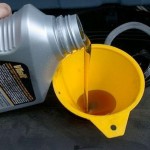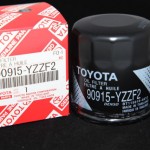Switching to Synthetic 0-20 Oil – Why it Matters
Synthetic oil has become a popular choice for modern vehicles, but deciding to make the switch isn't always straightforward. Many drivers remain undecided, questioning whether it's truly worth the additional cost. From our perspective, the investment in synthetic oil is well worth it. Toyota itself recognized the benefits of synthetic oil after thoroughly weighing the pros and cons. If Toyota trusts it, so should you—here’s why. Beginning in the early 2010s, Toyota transitioned to fully synthetic oil for the majority of its models. At that time, 0W-20 synthetic oil stood out as the preferred option. This shift was driven by numerous compelling reasons: Perhaps most importantly, synthetic oil extends the lifespan of your engine. When paired with Toyota oil filters, your vehicle operates at peak performance. Making this simple change can add years to your car's longevity. Over time, synthetic oil proves to be far superior to traditional oil. The next time you visit the mechanic for an oil change, consider spending a bit more for synthetic oil—it could make all the difference in your vehicle's lifespan. While 0W-20 synthetic oil already outperforms conventional oil, there’s always room for improvement. Recognizing this, Toyota began testing 0W-16 oil in the mid-2010s. This new formulation offers even greater advantages: As a pioneer in automotive durability and quality, Toyota sets the bar high. If you prioritize your car's lifespan and efficiency, switching to synthetic oil is a no-brainer. Whether you're driving a Toyota or another brand, upgrading to synthetic oil can yield significant benefits. It’s not just about saving money in the long run—it’s about protecting your investment and ensuring your vehicle runs smoothly for years to come. Zhejiang Guangming Plastics Machinery Co., Ltd., is the leading manufacturer in China specialized in manufacturing screws & barrels for extruders and injection moulding machines. 38Crmoal Bimetallic Twin Screw,Conical Twin Screw,Bimetallic Twin Screw,Bimetallic Twin Screw Barrel Zhejiang Guangming Plastics Machinery Co.,Ltd. , https://www.gmscrews.comWhy Toyota Made the Shift to Synthetic Oil

Introducing 0W-16 Oil: A Step Up from 0W-20
Related Posts
With over 25 years' experience in this field, we can produce customized screws or barrels according to your specific demands with high quality and competitive price.
We can make bimetallic screw & Barrel based on 1.8550 material.

 Is Synthetic Oil Good or Bad For My Toyota?
Is Synthetic Oil Good or Bad For My Toyota?
 Toyota FJ Cruiser Maintenance – Oil Change
Toyota FJ Cruiser Maintenance – Oil Change
 Is Your New Toyota Car Losing Oil?
Is Your New Toyota Car Losing Oil?
 Toyota Corolla Maintenance – Oil Change
Toyota Corolla Maintenance – Oil Change
 What Is OW-20 Oil? – Best Oil for Toyota Vehicles
What Is OW-20 Oil? – Best Oil for Toyota Vehicles
 Replacing Your Toyota Yaris Oil Filter
Replacing Your Toyota Yaris Oil Filter